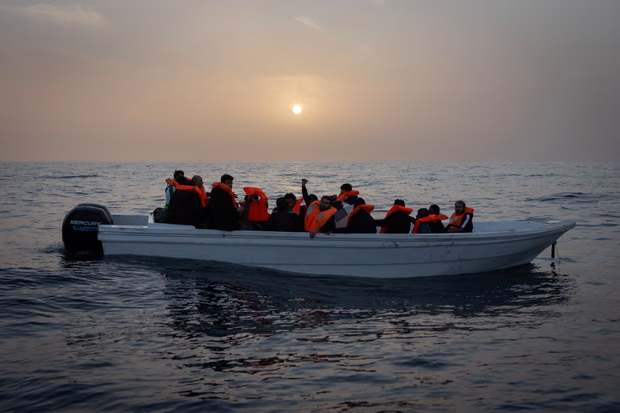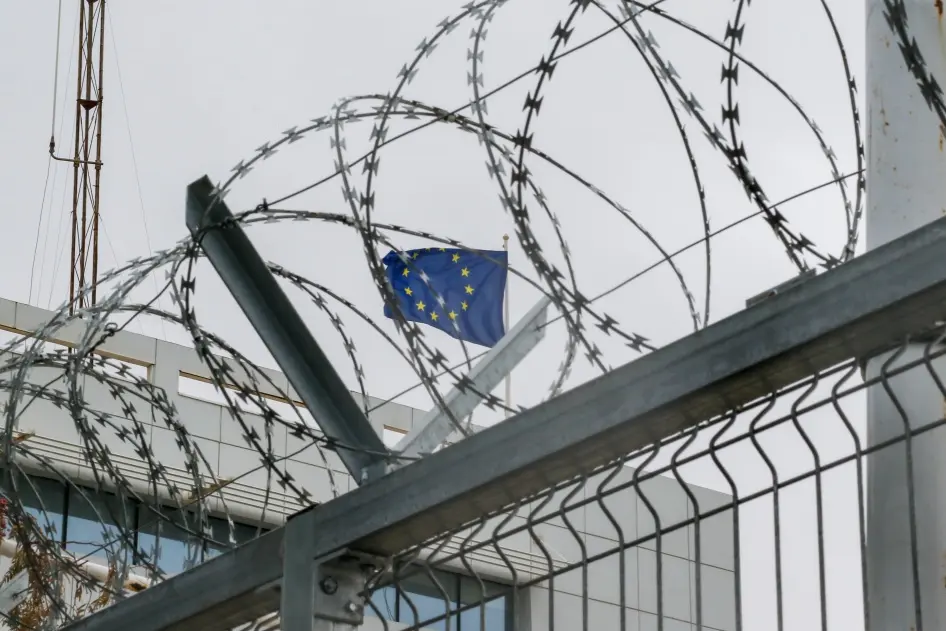By Anagnostakis Law Team
Abstract/Executive Summary
A ceasefire in the protracted conflict affecting the Palestinian territories, while a welcome development for the immediate cessation of violence and humanitarian relief, is a distinct legal and political event from the ongoing investigations and potential prosecutions by the International Criminal Court (ICC). This article examines the complex relationship between a ceasefire agreement and the ICC’s jurisdiction, the continued applicability of International Humanitarian Law (IHL), and the implications for individual criminal responsibility. It differentiates the ICC’s role from that of the International Court of Justice (ICJ) and addresses the principle of complementarity, particularly as it applies to the situation in Palestine. The analysis underscores that the ICC’s mandate to pursue individual accountability for alleged war crimes and crimes against humanity operates independently of political settlements, affirming that justice for victims remains an imperative legal pursuit, irrespective of geopolitical shifts.
Keywords: ICC, ceasefire, Palestine, International Humanitarian Law, war crimes, complementarity, arrest warrants, ICJ, accountability.
Introduction
The enduring conflict in the Palestinian territories, marked by cycles of intense violence and attempts at de-escalation, continues to cast a long shadow over the foundational principles of international law and justice. As discussions around a potential ceasefire gain traction, a critical legal question arises: how would such a cessation of active fighting influence the ongoing proceedings at the International Criminal Court (ICC)? This article posits that while a ceasefire is a crucial step toward alleviating immediate suffering, it does not inherently interrupt or diminish the independent and imperative pursuit of accountability for alleged international crimes.
This article will demonstrate that the ICC’s investigations and potential prosecutions are likely to persist, even in the event of a ceasefire, owing to the continuous applicability of International Humanitarian Law, the Court’s established jurisdiction over the Palestinian territories, and the fundamental nature of individual criminal responsibility. It will delineate the legal framework governing these proceedings, distinguish the ICC’s function from that of the International Court of Justice, and explore the nuanced challenges posed by political pressures and the principle of complementarity in this unique context. Ultimately, this article asserts that while a ceasefire addresses the cessation of hostilities, the pursuit of justice for alleged international crimes remains a separate, enduring, and non-negotiable legal process crucial for long-term peace and stability.
Background/Literature Review
The historical context of the situation in the Palestinian territories is essential for understanding the current legal landscape. Decades of occupation and conflict have led to numerous allegations of violations of international law by various actors. The establishment of the ICC in 2002 represented a pivotal global commitment to ending impunity for the most serious international crimes.
Palestine’s accession to the Rome Statute in 2015 as a State Party was a landmark event, formally granting the ICC potential jurisdiction over alleged crimes committed in the Palestinian territories. This development, while welcomed by many as a path to justice, has been met with significant political and legal objections from certain states, particularly regarding Palestine’s statehood and the extent of the ICC’s authority. Nevertheless, in February 2021, the ICC Pre-Trial Chamber I affirmed its territorial jurisdiction over Gaza, the West Bank, and East Jerusalem, thereby paving the way for formal investigations into alleged crimes within these areas.
Academic discourse and legal commentary have extensively debated the implications of the ICC’s involvement. Key discussions revolve around the interpretation of IHL in asymmetrical conflicts, the application of the doctrine of complementarity, particularly concerning non-state actors and states not party to the Rome Statute, and the broader political ramifications of judicial intervention in a deeply entrenched conflict. The present situation aligns with other contexts where the ICC has investigated crimes during or after conflict, such as in Ukraine or the Democratic Republic of Congo, reinforcing the Court’s consistent stance that accountability for grave international crimes is a distinct legal process from political resolutions.
Main Body/Analysis
The Enduring Applicability of International Humanitarian Law
A ceasefire, often perceived as a cessation of hostilities, does not necessarily equate to the termination of an armed conflict, nor does it suspend the application of International Humanitarian Law (IHL). As established by international tribunals, IHL continues to govern conduct until a “general conclusion of peace” is achieved. A ceasefire is typically a temporary or partial agreement to pause fighting, not a definitive peace settlement. This means that the legal obligations arising from IHL, including adherence to principles such as distinction, proportionality, and precaution, remain fully in force.
Consequently, any alleged violations of IHL, including war crimes and crimes against humanity, committed either before a ceasefire or during its tenure, remain subject to the full scrutiny of international criminal law. The cessation of active combat does not erase the legal responsibilities of individuals or state actors; rather, it often provides a window for increased attention to documentation and investigation of past and ongoing alleged breaches. The principles underpinning IHL are designed to protect civilians and regulate means and methods of warfare, and their applicability persists as long as the underlying armed conflict is considered active, even if paused.
The ICC’s Established Jurisdiction and Ongoing Investigations
The ICC’s jurisdiction over the situation in the State of Palestine is firmly established, following Palestine’s accession to the Rome Statute in 2015 and the Pre-Trial Chamber’s definitive ruling in February 2021 affirming territorial jurisdiction over Gaza, the West Bank, and East Jerusalem. This decision clarified the legal basis for the ICC to investigate alleged crimes committed within these territories, regardless of the challenging political dynamics.
The formal investigation, initiated in March 2021, covers alleged crimes committed since June 2014 and has expanded to include the most recent escalations of violence. Notably, numerous States Parties to the Rome Statute, including South Africa, Bangladesh, Bolivia, Comoros, and Mexico, have formally referred the situation to the ICC Prosecutor, underscoring the international community’s expectation that investigations proceed diligently. These referrals reinforce the Prosecutor’s mandate to collect evidence, interview witnesses, and conduct legal analysis, processes that are designed to operate independently of the political fluctuations of conflict, including any ceasefire arrangements. The ICC’s commitment is to justice, not political expediency.
Arrest Warrants and the Principle of Complementarity
The issuance of arrest warrants for high-profile individuals, including Israeli Prime Minister Benjamin Netanyahu, former Israeli Defense Minister Yoav Gallant, and senior Hamas leader Mohammed Deif, for alleged war crimes and crimes against humanity, is a significant step in the ICC’s proceedings. These warrants reflect the Court’s determination to hold individuals accountable for grave international crimes.
Crucially, a ceasefire, regardless of its scope or terms, will not automatically lead to the revocation or suspension of these arrest warrants. International criminal law operates on the principle of individual criminal responsibility, which means that any amnesty provisions in a political agreement would not bind the ICC. The Court’s primary role is to ensure that those most responsible for atrocity crimes face justice.
The principle of complementarity is central to the ICC’s function, stipulating that the Court will only intervene when national judicial systems are genuinely unwilling or unable to investigate and prosecute such crimes. While Israel, a non-party to the Rome Statute, asserts its capacity for independent investigations, the ICC Prosecutor has, at times, expressed concerns regarding the genuineness and thoroughness of such efforts in relation to international legal standards. For complementarity to genuinely apply, national investigations must be credible, impartial, and cover the same alleged conduct that the ICC is examining. A ceasefire period could, in theory, allow for more robust national investigations, but the onus would be on the relevant national authorities to demonstrate their willingness and ability to genuinely pursue accountability in line with international norms.
Distinguishing the ICC from the International Court of Justice (ICJ)
It is vital to differentiate between the roles of the ICC and the International Court of Justice (ICJ). Both are international judicial bodies located in The Hague, yet their mandates are distinct. The ICJ is the principal judicial organ of the United Nations, resolving legal disputes between states and providing advisory opinions on legal questions referred by UN organs. The ICJ’s recent engagement with the situation includes proceedings initiated by South Africa alleging Israel’s breach of the 1948 Genocide Convention. While the ICJ has issued provisional measures, including ordering Israel to prevent genocidal acts and facilitate humanitarian aid, it has not issued an order for a ceasefire.
The ICJ’s proceedings focus on state responsibility, whereas the ICC’s jurisdiction is over individual criminal responsibility. A ceasefire would be unlikely to directly impact the ICJ’s ongoing proceedings, which can take several years to reach a final judgment on the merits. The distinct pathways and legal bases of these two courts mean that developments in one do not automatically dictate outcomes in the other; both represent separate avenues for the pursuit of justice and adherence to international law.
Discussion/Implications
The implications of a ceasefire for ICC proceedings are profound and multi-layered. Primarily, it highlights the fundamental distinction between political resolutions to conflict and the enduring legal quest for accountability. A ceasefire may bring a much-needed pause in violence and facilitate humanitarian efforts, but it does not diminish the legal imperative to investigate and prosecute individuals alleged to have committed international crimes. This continuous pursuit of justice, even amidst a cessation of hostilities, reinforces the principle that impunity for atrocity crimes is unacceptable and can serve as a crucial deterrent against future violations.
Nevertheless, significant challenges persist. The political ramifications of ICC arrest warrants, particularly against sitting leaders, are undeniable. The willingness of States Parties to the Rome Statute to cooperate with these warrants, especially in contexts of intense geopolitical pressure, will be a critical test of the Court’s authority and independence. Furthermore, the genuine capacity and willingness of national judicial systems to conduct impartial investigations that meet international standards will remain under intense scrutiny by the ICC, particularly regarding the application of complementarity. A ceasefire period could theoretically offer an opportunity for national authorities to demonstrate such genuine efforts, thereby potentially impacting the admissibility of cases before the ICC. However, historical precedent suggests that such investigations often face political impediments and questions regarding their independence and thoroughness.
Conclusion
In conclusion, while a ceasefire in the Palestinian territories would be a significant step toward peace and humanitarian relief, it represents a pause in hostilities, not an end to the vital legal processes of accountability. The International Criminal Court, guided by the Rome Statute and the principles of International Humanitarian Law, will continue its investigations into alleged war crimes and crimes against humanity. This unwavering commitment ensures that the pursuit of justice for victims remains an independent and unyielding force in the broader quest for a just and peaceful resolution. The legal framework is clear: past actions remain subject to scrutiny, irrespective of future political agreements. The ICC’s continued engagement in the situation in Palestine reaffirms its indispensable role as a mechanism for individual accountability, demonstrating that the scales of justice must often turn independently of the political tides of conflict. This steadfast commitment from the international community, through its support for the ICC, underscores that serious violations of international law cannot be swept aside by political expediency, and that accountability is a cornerstone for true and lasting peace.
Bibliography/References
Rome Statute of the International Criminal Court.
International Criminal Court, Decision on the Prosecutor’s request for a ruling on the Court’s territorial jurisdiction in Palestine, ICC-01/18, Pre-Trial Chamber I, February 5, 2021.
United Nations, General Assembly Resolution 67/19, Status of Palestine in the United Nations, November 29, 2012.
Prosecutor of the International Criminal Court, Statement of ICC Prosecutor Karim A.A. Khan KC on the application for warrants of arrest in the Situation in the State of Palestine, May 20, 2024.
International Court of Justice, Application of the Convention on the Prevention and Punishment of the Crime of Genocide (South Africa v. Israel), Provisional Measures Order, January 26, 2024.
Cassese, Antonio. International Criminal Law. 3rd ed. Oxford University Press, 2013.
Cryer, Robert, et al. An Introduction to International Criminal Law and Procedure. 4th ed. Cambridge University Press, 2019.
Schabas, William A. The International Criminal Court: A Commentary on the Rome Statute. Oxford University Press, 2016.
Tadić, Duško, Decision on the Defence Motion for Interlocutory Appeal on Jurisdiction, IT-94-1-AR72, International Criminal Tribunal for the Former Yugoslavia, Appeals Chamber, October 2, 1995.







